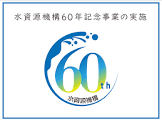Japan Water Agency

Total capacity of implemented projects
up to 10 MW
Countries of projects presence
1
Japan Water Agency (JWA) is a leading company in Japan that develops renewable energy projects in various sectors, including small hydro. The company was established in 1964 with the aim of promoting sustainable development in Japan by harnessing the power of water resources. Since then, JWA has been actively involved in the development of renewable energy projects in Japan and has played a significant role in the country's transition to a low-carbon economy.
Small hydro is one of the key sectors in which JWA operates. Small hydro refers to hydroelectric power plants with a capacity of less than 10 megawatts (MW). These power plants are typically located in small rivers or streams and can generate electricity by harnessing the energy of flowing water. Small hydro is a renewable and clean source of energy that has the potential to provide a significant amount of electricity to communities around the world.
JWA has been developing small hydro projects in Japan for many years. The company has extensive experience in the design, construction, and operation of small hydro power plants. JWA's small hydro projects are typically located in rural areas where there is a high demand for electricity but limited access to the grid. These projects provide a reliable source of electricity to communities that would otherwise have to rely on diesel generators or other fossil fuel-based sources of energy.
One of JWA's most significant small hydro projects is the Yanbaru Power Plant, located in the Yanbaru region of Okinawa Prefecture. The Yanbaru Power Plant has a capacity of 5.5 MW and generates electricity using the energy of the Hiji River. The power plant was completed in 2014 and is operated by JWA in partnership with the local community. The project has been a significant success and has provided a reliable source of electricity to the local community while also reducing the region's dependence on fossil fuels.
Another notable small hydro project developed by JWA is the Kurobe Power Plant, located in Toyama Prefecture. The Kurobe Power Plant has a capacity of 2.5 MW and generates electricity using the energy of the Kurobe River. The power plant was completed in 2009 and is operated by JWA in partnership with the local community. The project has been a significant success and has provided a reliable source of electricity to the local community while also reducing the region's dependence on fossil fuels.
JWA's small hydro projects are designed to be environmentally friendly and sustainable. The company takes great care to ensure that its projects have minimal impact on the environment and that they are designed to last for many years. JWA's small hydro power plants are typically located in areas where there is little or no impact on local wildlife or ecosystems. The company also works closely with local communities to ensure that its projects are well-received and that they provide significant benefits to the local economy.
In addition to small hydro, JWA is also involved in other renewable energy sectors, including solar and wind power. The company has developed several solar power projects in Japan, including the Kita-Kyushu Solar Power Plant, which has a capacity of 2.6 MW and generates electricity using photovoltaic panels. JWA has also developed several wind power projects in Japan, including the Yatsuo Wind Power Plant, which has a capacity of 2.4 MW and generates electricity using wind turbines.
JWA's commitment to renewable energy is driven by its belief that sustainable development is essential for the long-term prosperity of Japan and the world. The company is committed to reducing Japan's dependence on fossil fuels and to promoting the use of renewable energy sources. JWA's small hydro projects are an important part of this commitment, providing a reliable and sustainable source of electricity to communities around Japan.
In conclusion, Japan Water Agency is a leading company in Japan that develops renewable energy projects in various sectors, including small hydro. The company has extensive experience in the design, construction, and operation of small hydro power plants and has played a significant role in the development of renewable energy projects in Japan. JWA's small hydro projects are designed to be environmentally friendly and sustainable, and the company works closely with local communities to ensure that its projects provide significant benefits to the local economy. JWA's commitment to renewable energy is driven by its belief that sustainable development is essential for the long-term prosperity of Japan and the world.